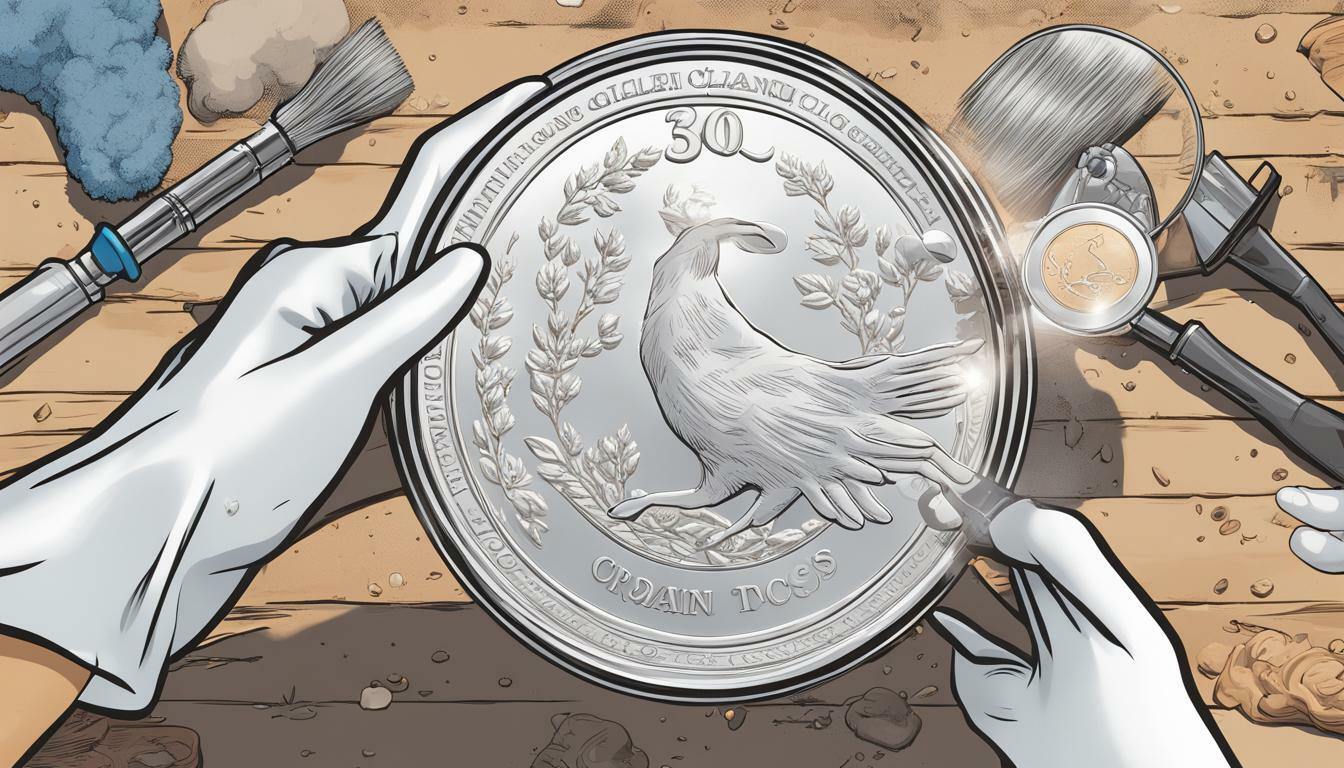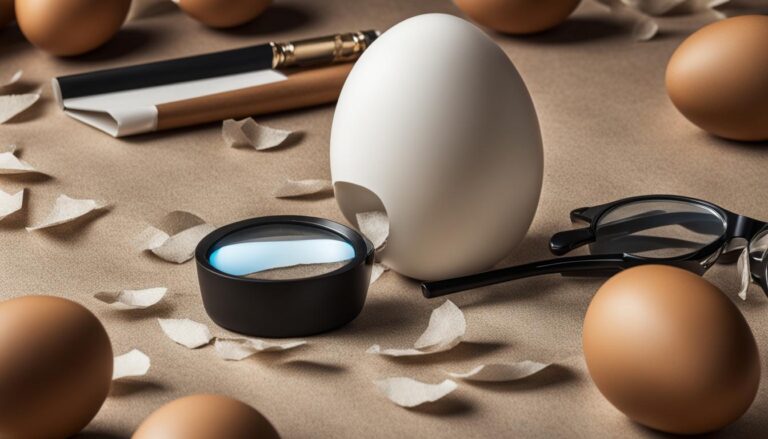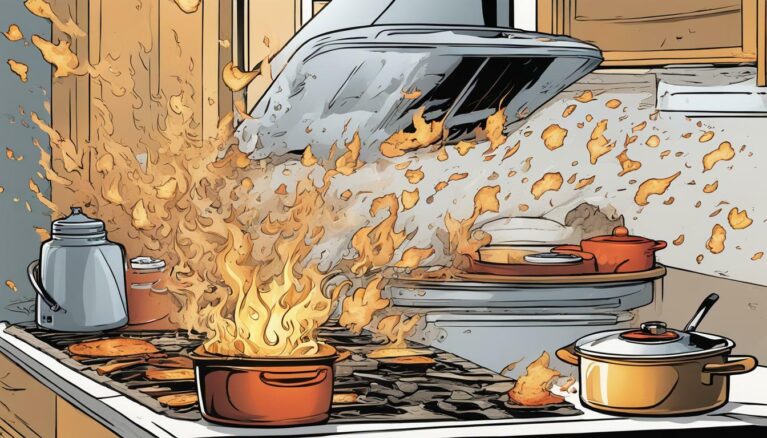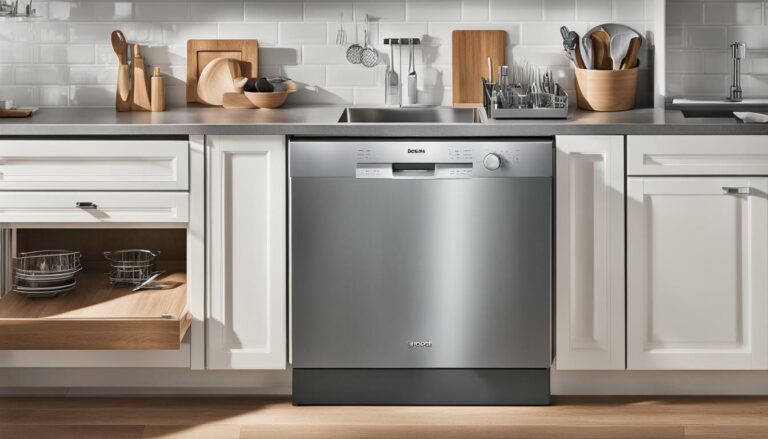Safely Clean Coins: How to Clean Coins Without Damaging Them
Welcome to our comprehensive guide on safely cleaning coins. Whether you’re a serious coin collector or simply want to restore the luster of a treasured coin, it’s essential to use proper techniques that won’t harm the coin’s surface or diminish its value.
In this article, we will cover a variety of coin cleaning methods and safe techniques to preserve the coins’ appearance and quality. From assessing the condition of your coins to gathering the right supplies, we’ve got you covered. So, let’s get started!
Key Takeaways
- Cleaning coins properly is essential to preserving their value and appearance.
- Gentle cleaning techniques are crucial to prevent damage to the coin’s surface.
- Assessing the condition of the coin and using appropriate supplies are crucial for safe coin cleaning techniques.
Why Clean Coins Properly?
Preserving the value and appearance of your coin collection requires gentle cleaning techniques that prevent damage during the process. Improper cleaning can lead to scratches, loss of shine, and even tarnish or corrosion. At our publication, we emphasize the importance of gentle coin cleaning to preserve the coins’ historical and monetary value.
Using safe coin cleaning techniques is crucial to prevent any potential damage during the cleaning process. Gentle coin cleaning can help prevent scratches, loss of detail, and damage to the coin’s surface. Therefore, it is important to use methods that are proven and trusted to protect coin quality. Properly preserving coins during cleaning involves understanding the dos and don’ts of the cleaning process, assessing the coin’s condition before cleaning, and gathering the right supplies to ensure safe handling.
Assessing the Condition of Your Coins
Before cleaning your coins, it is crucial to assess their condition and identify any potential risks. This will help you to avoid damaging the coins during the cleaning process.
Here are some coin cleaning dos and don’ts to keep in mind:
- Do handle your coins carefully and hold them by the edges to avoid touching the surfaces with your fingers.
- Do use a clean, soft cloth to wipe any loose dirt or debris from the surface of the coin.
- Do not use any abrasive materials, such as brushes or scouring pads, that can scratch or damage the surface of the coin.
- Do not use any harsh chemicals or cleaning solutions that can cause discoloration or corrosion.
- Do not attempt to clean coins that are rare, valuable, or historical without consulting a professional.
By following these tips for cleaning coins without causing damage, you can help ensure that your coins remain in excellent condition for years to come.
Gathering the Right Supplies
Before beginning the coin cleaning process, it is essential to have the right supplies on hand. We recommend using non-abrasive cleaning methods to ensure that your coins are safely cleaned without any damage being caused to their surface.
Here are some of the supplies you will need:
| Supplies | Usage |
|---|---|
| Clean, distilled water | For soaking and rinsing coins |
| Mild dish soap | For gentle cleaning |
| Cotton gloves | To avoid touching coins with bare hands and transferring oils |
| Microfiber cloth | To dry coins without scratching or leaving residue |
| Soft-bristled toothbrush | To remove dirt and grime from textured surfaces |
| Plastic or wooden picks | To remove debris from crevices without scratching the surface |
In addition to these supplies, it is important to create a safe work surface to avoid dropping or damaging your coins. We recommend using a soft, non-abrasive surface, like a microfiber towel or felt pad, to protect your coins during cleaning.
Basic Cleaning Techniques
Now that we have assessed the condition of our coins and gathered the right supplies, it’s time to begin cleaning. It’s important to note that all coins should be handled with care and that harsh or abrasive cleaning methods should be avoided at all costs. Here are some basic non-abrasive coin cleaning methods to prevent coin damage during cleaning:
- Warm water: Begin by using warm water to gently wash the coin. Use your fingers to rub the surface of the coin, being careful not to apply too much pressure. Dry the coin with a soft cloth or let it air dry on a clean surface.
- Mild soap: If the coin has more dirt or grime, use a mild soap to clean the coin. Mix a small amount of soap with warm water and use a soft-bristled brush to gently scrub the coin’s surface. Rinse the coin with warm water and dry it with a soft cloth or let it air dry on a clean surface.
If the coin has more stubborn dirt or stains, it’s best to consult a professional coin cleaning service to prevent further damage.
Cleaning Copper and Bronze Coins
When it comes to cleaning copper and bronze coins, it is important to use safe coin cleaning techniques to preserve their condition. These types of coins are sensitive to tarnish and corrosion, so it is crucial to handle them gently.
| DO: | DON’T: |
|---|---|
| Use a mild soap solution: Create a mixture of warm water and a mild soap solution, such as dish soap. Dip a soft-bristled brush or cloth into the solution and gently clean the coin’s surface. | Use abrasive materials: Avoid using abrasive materials, as they can scratch the coin’s surface. |
| Rinse thoroughly: After cleaning, rinse the coin thoroughly with distilled water to remove any soap residue. | Scrub aggressively: Do not scrub aggressively or use rough cloths, as this can damage the coin’s surface. |
| Pat dry: Use a soft cloth to pat the coin dry. Do not rub the coin or use paper towels, as these can cause scratches. | Expose to harsh chemicals: Do not expose the coin to harsh chemicals, such as bleach or vinegar, as they can cause damage. |
Preserving coins during cleaning is especially important for copper and bronze coins. These coins are known to develop a greenish tint over time, known as patina, which can actually add to their value. When cleaning, be careful not to remove too much patina, as it can greatly decrease the coin’s value.
Cleaning Silver Coins
When it comes to cleaning valuable coins like silver, it’s important to use safe coin cleaning techniques to avoid damaging or altering the appearance of the coin. Here are some best practices for cleaning silver coins:
Assess the coin’s condition
Before starting the cleaning process, assess the condition of the silver coin. Look for any dirt or debris that might be on the surface, as well as any tarnish or discoloration.
It’s important to note that completely removing tarnish from a silver coin can actually decrease its value, so weigh the pros and cons before making the decision to remove tarnish.
Use a gentle cleaning solution
For most silver coins, a non-abrasive cleaning solution like soap and water is effective. Mix a small amount of mild soap with warm water and use a soft-bristled brush to gently clean the surface of the coin.
For more stubborn dirt or tarnish, try using a silver polish that is specifically designed for coins. Be sure to follow the instructions carefully and test the polish on a small, inconspicuous area before using it on the entire coin.
Avoid harsh cleaning techniques
Never use harsh cleaning techniques like scrubbing with abrasive materials or using strong chemicals. These methods can scratch or damage the surface of the coin, causing it to lose value.
Rinse and dry the coin
After cleaning, rinse the coin thoroughly with distilled water to remove any remaining soap or polish residue.
Gently pat the coin dry with a soft, lint-free cloth. Avoid rubbing or polishing the coin too hard, as this can damage the surface.
Remember: preserving the coin’s condition is the most important goal when cleaning silver coins. Using safe coin cleaning techniques and best practices will help ensure that your silver coin continues to be a valuable part of your collection for years to come.
Cleaning Gold Coins
Gold coins require special care during cleaning. While gold is known for its durability, it is a relatively soft metal that can be easily scratched or dulled. Therefore, it is important to use gentle coin cleaning techniques when handling gold coins.
Before cleaning a gold coin, it is important to assess its condition. Look for any signs of damage or corrosion, as these can be exacerbated during cleaning. Use a magnifying glass to inspect the coin’s surfaces and edges, as small scratches or dings can affect its value.
When gathering supplies for cleaning gold coins, avoid any abrasive materials that can scratch the surface. Instead, use a soft-bristled brush, such as a camel hair brush, to gently remove any dirt or debris. Non-abrasive cleaners, such as distilled water or a mild soap solution, can also be used for gentle cleaning.
To clean a gold coin, wet the brush with the cleaning solution and gently brush the surface in a circular motion. Be sure to avoid scrubbing too hard or using excessive force, as this can cause scratches or other damage. Rinse the coin with distilled water to remove any remaining residue and pat dry with a soft, lint-free cloth.
When drying and storing gold coins, be sure to handle them with care to prevent damage. Place the coin on a soft surface, such as a velvet pad or cloth, to avoid scratching the surface. Avoid touching the coin directly with your fingers, as the oils on your skin can damage the surface. Instead, use cotton gloves or hold the coin by its edges.
With gentle coin cleaning techniques and proper handling, you can effectively clean and preserve the value and beauty of your gold coin collection.
Cleaning Ancient Coins
If you are lucky enough to own ancient coins, you know how precious they are and how important it is to preserve their historical significance. When it comes to cleaning ancient coins, it is crucial to handle them with care.
Before you begin cleaning, it is essential to assess the condition of the coins. Check for any signs of corrosion or damage that could worsen during cleaning. It is best to avoid harsh cleaning methods and to proceed with gentle techniques.
The safest way to clean ancient coins is by using distilled water and a soft-bristled toothbrush. Gently apply water to the coin surface and brush it with a soft, circular motion. You can also use a small amount of olive oil to remove dirt and grime, but avoid using too much oil as it could damage the coin’s surface.
It is important to avoid using any chemicals or abrasive tools on ancient coins, as they can lead to irreversible damage and affect their historical value.
After cleaning, gently rinse the coins with distilled water and pat them dry with a soft cloth. Store the coins in a dry, cool place, away from direct sunlight or heat.
By following these gentle cleaning techniques and proper storage methods, you can ensure the preservation of your ancient coins for generations to come.
Drying and Storing Cleaned Coins
After properly cleaning your coins, it’s important to dry them thoroughly to avoid any damage. One effective method is to use a soft, lint-free cloth or paper towel to gently pat the coin dry. Avoid rubbing the coin, as this can cause scratches.
Once your coins are dry, you’ll want to store them properly to prevent any future damage or tarnishing. We recommend using coin flips or plastic sleeves that are specifically made for coin storage. These will help protect your coins from exposure to air and other elements that can cause damage.
It’s important to store your coins in a dry and cool environment, away from any direct sunlight or humidity. Also, be sure to handle your cleaned coins with clean hands or gloves to avoid transferring oils or dirt onto the coins.
Following these tips for drying and storing cleaned coins will help preserve their condition and value for years to come.
Professional Coin Cleaning Services
For some collectors, seeking professional assistance for coin cleaning may be the preferred option. Professional cleaners have access to specialized equipment and techniques to safely clean coins without causing damage.
However, it is important to research and select a reputable and experienced coin cleaning service. Look for reviews and recommendations from other collectors, and ask about their cleaning methods to ensure they align with safe and gentle coin cleaning practices.
It is also important to note that professional cleaning services may come with a higher cost compared to DIY cleaning methods. Be sure to weigh the benefits and potential risks before making a decision.
Coin Cleaning Dos and Don’ts: Tips for Safe Coin Cleaning Techniques
When it comes to cleaning coins, it’s essential to use safe and gentle techniques to avoid damaging them. Here are some coin cleaning dos and don’ts to keep in mind:
Do Assess Coin Condition Before Cleaning
Before cleaning your coins, take the time to assess their condition. Look for any signs of damage, such as scratches or discoloration, and consider whether cleaning is necessary. If your coins are in good condition, you may want to skip cleaning altogether to avoid any potential risks.
Do Gather the Right Supplies
When cleaning your coins, it’s important to use the right supplies. Avoid anything abrasive or harsh, as these can scratch or damage the coin’s surface. Instead, opt for non-abrasive solutions and soft-bristled tools that will gently clean the coin without causing any harm.
Do Use Basic Cleaning Techniques
Basic cleaning techniques, such as soaking your coins in warm water and mild detergent or gently wiping them with a soft cloth, are typically safe for most coins. However, be careful not to rub too hard or use anything abrasive, as this can cause scratches or remove the coin’s finish.
Do Clean Copper, Bronze, Silver, Gold, and Ancient Coins with Care
Each type of coin requires specific cleaning techniques to ensure their safety. Copper, bronze, and silver coins are susceptible to tarnish and corrosion and require gentle cleaning with non-abrasive solutions. Gold coins are delicate and should be handled with care to prevent scratching or dulling of the surface. Ancient coins require special attention to avoid altering their historical value.
Don’t Use Harsh Chemicals
Avoid using any harsh chemicals, such as bleach or ammonia, when cleaning your coins. These can cause discoloration or damage to the coin’s surface.
Don’t Rub Too Hard
When cleaning your coins, be gentle and avoid rubbing too hard. Excessive rubbing or scrubbing can cause scratches or remove the coin’s finish.
Don’t Store Wet Coins
After cleaning your coins, make sure they are completely dry before storing them. Wet coins can promote corrosion and damage over time.
By following these coin cleaning dos and don’ts, you can ensure safe and effective coin cleaning techniques that will preserve the value and beauty of your coin collection.
FAQ
Q: How often should I clean my coins?
A: It is generally recommended to clean coins only when necessary, such as when they are heavily soiled or tarnished. Over-cleaning can potentially damage the coin’s surface, so it is best to avoid excessive cleaning.
Q: What cleaning solutions should I use?
A: When cleaning coins, it is important to use non-abrasive solutions. Mild dish soap mixed with warm water is a common and safe option. Avoid using harsh chemicals or abrasive cleaners, as they can cause damage.
Q: Can I clean valuable coins?
A: Yes, you can clean valuable coins, but it is crucial to use gentle cleaning techniques and exercise caution. Valuable coins may require professional cleaning services to ensure their preservation.
Q: How do I dry my cleaned coins?
A: To dry cleaned coins, gently pat them dry with a soft cloth, such as a microfiber cloth. Avoid rubbing or using excessive force, as this can result in scratches. Allow the coins to air dry completely before storing them.
Q: Where should I store my cleaned coins?
A: Store cleaned coins in a dry and stable environment. Acid-free coin holders or albums are recommended for long-term storage. Avoid storing coins in areas prone to extreme temperature fluctuations or high humidity.
Q: Should I use coin cleaning machines or ultrasonic cleaners?
A: It is generally best to avoid coin cleaning machines or ultrasonic cleaners, as they can be too harsh and potentially damage the coins. Stick to gentle manual cleaning methods for better preservation.






